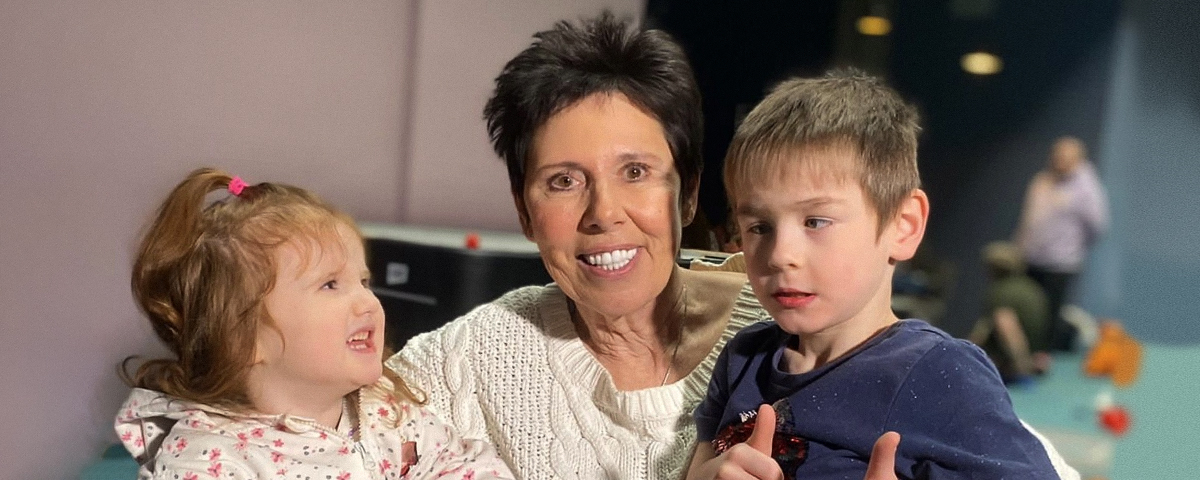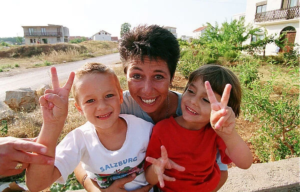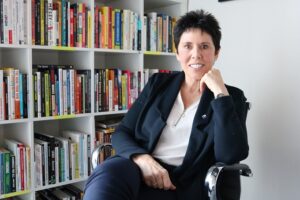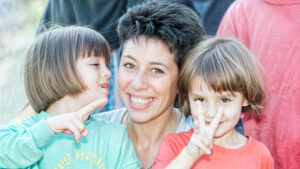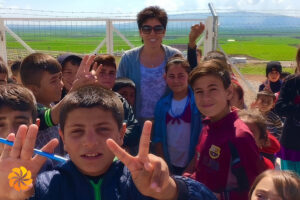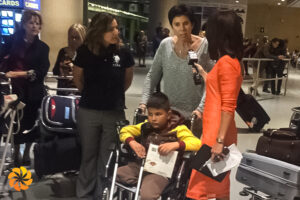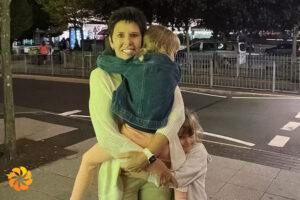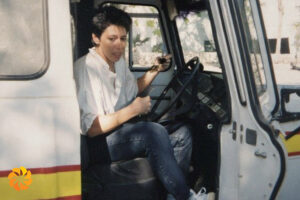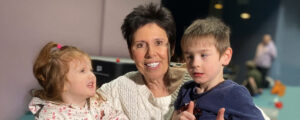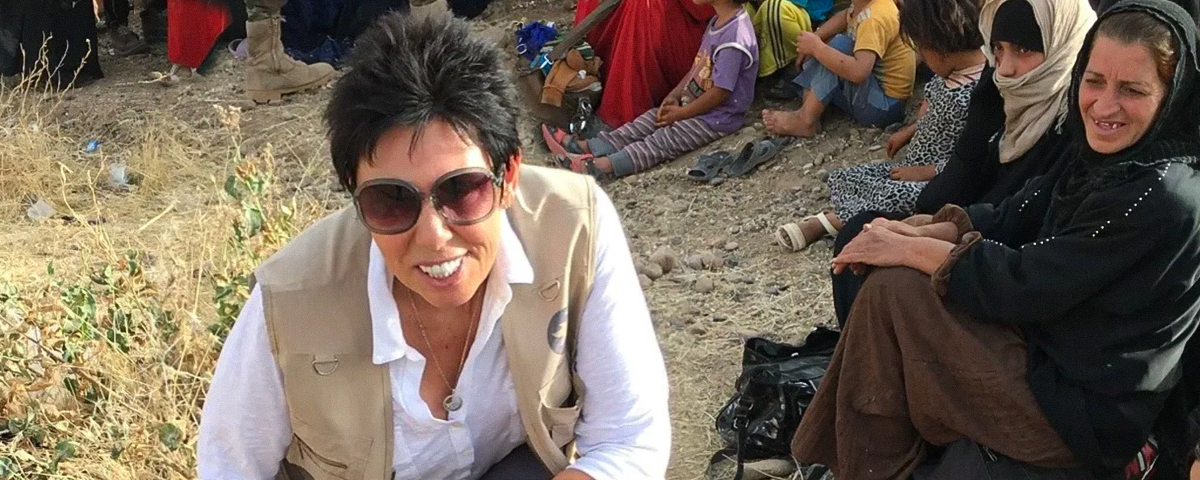Sally Becker
Credentials
Humanitarian Cause
Emergency Response, Evacuation from Conflict Zones, Humanitarian Negotiations, Humanitarian Aid Supply, Rescue in Emergency Situations, Forced Displacement, Supporting Refugees
Impact Location
UK, Bosnia, Kosovo, Iraq, Lebanon, Palestine, Ukraine
Occupation
Aid Worker / Founder of Save A Child and Road to Peace
Photo Gallery
About
Sally Becker is a British humanitarian aid worker dedicated to saving children affected by war and conflict since 1993. Best known for her life-saving work in Bosnia and Kosovo, she has also provided critical aid to children in Northern Iraq, Afghanistan, and Ukraine. Sally is the founder of Save a Child, formerly known as Road to Peace, a charity that connects medical assistance with children in need across conflict zones. Her relentless service has garnered her significant recognition, including a Nobel Peace Prize nomination in 2020. Today, Becker continues her mission to help children affected by war, focusing her efforts on Ukraine and the Middle East.
Sally Becker has spent more than thirty years rescuing and protecting children caught in deadly conflict zones. From the besieged streets of Bosnia and Kosovo to the frontlines of Iraq, Afghanistan, Ukraine, and Gaza, she has led daring evacuations, set up recovery centers for survivors of violence, and launched a telemedicine network that brings life-saving pediatric expertise into war zones.
Born in London, Ms. Becker did not grow up imagining a future in humanitarian work. The decision that would shape her life came spontaneously—on an ordinary day and in front of a television, no less. A news report from Sarajevo in April 1993 showed a desperate mother asking for help to save the people trapped during Serbian forces’ siege of the city. “She noticed the TV crew, looked straight into the camera and said, ‘Why is no one helping us?’”, recalls Sally. An artist based in Spain at the time, Ms. Becker couldn’t shake the image. “I just felt that I needed to do something,” she says.
But reaching Bosnia and Herzegovina was far from easy. With no formal medical training or background in humanitarian work, established relief agencies initially turned her away. “I applied to the International Red Cross and other major organizations, but they didn’t want me because I didn’t have any medical experience,” Sally explains. Undeterred, she eventually found a Croatian organization called Suncokret (‘Sunflower’) willing to take her on as a volunteer helping with humanitarian convoys and aid deliveries to the war-torn region.
It was during that mission that Ms. Becker was approached by a UN official, who asked her to assist with evacuating injured children from the besieged east side of the Bosnian city of Mostar. As one of the few international aid workers able to move freely between the Croat-controlled west side and the east, Sally secured permission from local military authorities to rescue all the injured children and their mothers. However, bureaucratic delays meant the UN convoy departed without her.
Her frustration deepened when she saw on television one of the very children she had hoped to evacuate: a ten-year-old girl named Selma, who, along with her younger brother, had been gravely wounded by a rocket-propelled grenade while playing outside: “I was thinking, ‘I’ve got permission to help these kids, and I’m stuck here!’” The next morning, Sally finally received word that the evacuation had been greenlit. Driving an old ambulance packed with medical supplies, she set off across the frontline to bring the children to safety. Suddenly, the snipers surrounding the city started shooting at her.
“I was not prepared at all. I’d never come under fire,” says Sally. “The light was shot out on top of the ambulance, and I was terrified. I didn’t know what to do but decided just to keep going.” Inspiration came from an unlikely source: “I remembered that in the movies, they swerve the vehicles to try and avoid the bullets. So, I ducked beneath the steering wheel, looking up now and then to see where I was going and swerving from side to side,” she recalls.
Sally made it across the frontline and was taken to the hospital to meet Selma and several other children who were being treated in the basement. The next morning, with a fragile ceasefire holding, she drove the children and their mothers across the frontlines and handed them over to the UNHCR. As soon as she could, Sally returned for the remaining kids. Over the course of the war, she helped bring nearly a hundred children and their families from the city to safety, which earned her the nickname of “Angel of Mostar,” and also evacuated dozens more from other parts of Bosnia.
When war engulfed Kosovo, Becker was again on the move, placing herself at great personal risk to help others. Slobodan Milošević, President of Serbia, had ordered the borders to be closed and no one could get in or out. Sally was asked to help sick and injured children and their families who were trapped in the war zone. While leading 15 of them across the mountains to Northern Albania, they were ambushed by Serb paramilitaries. Ms. Becker was captured and detained for two weeks. Throughout it all, she only worried about the group she tried to evacuate. “There was a phone call, and it was the British Embassy, and they said, ‘How are you?’ And I said, ‘Never mind me, what about the kids?’”, says Sally. Fortunately, they had all made it safely across the border.
Upon her release, she traced the families to Northern Albania and while she was trying to secure permission to take them abroad for treatment, she was shot by masked gunmen outside her hotel. Gravely injured, she still refused to abandon the children, securing dozens of visas so every child could be evacuated for treatment abroad and personally escorting one little girl to Great Britain to get surgery after her parents were denied entry.
In Northern Albania and Kosovo, Sally helped establish safe centers for women and children affected by war, particularly survivors of sexual violence and families torn apart by conflict. Later, she set up an emergency pediatric care unit near the frontline in Mosul, Northern Iraq, followed by additional units in Hawija and Sinjar during the fight against ISIS. “I would go to the frontline in an ambulance to pick up injured children and their families and bring them back to the unit where they were treated by our medics. We were helping around 100 kids a day,” she says. “As the Iraqi army advanced, we moved with them, helping those caught in the crossfire.”
In 2021, Sally launched a telemedicine app to help improve pediatric care for children in war zones. “We connect doctors treating children in besieged or remote areas with our pediatric network of 300 specialists ready to help remotely,” she explains. “The doctor uploads a case, and we allocate it to the most appropriate specialist who explains exactly what to do for the child. Through this simple mobile app, we have been able to help thousands of children.”
To sustain her missions, Ms. Becker has often had to be a creative fundraiser, even selling her own jewelry in Mostar to pay for humanitarian aid when funds ran dry. “You can’t operate without funds,’ she says. “All aid organizations need funding of some kind, and that’s why organizations like Aurora are so important—they give people a chance to help.”
In 2022, she successfully evacuated 240 women and children, the majority of them orphans, from Ukraine to the UK, Poland, and Germany. More recently in Gaza, she worked with local partners to transfer 40 children in need of urgent medical care to hospitals in Egypt, Italy, the UAE, and Jordan. “We deal with all the bureaucracy and the red tape, but it’s the public who can actually make these things happen. I’m just grateful to Aurora for giving us a platform to highlight our work, and hopefully through that platform we’ll get help for future missions,” says Sally.
Many of the children she once carried across frontlines are now adults, and their resilience is Sally’s greatest source of hope. “When I see those kids safe and well, many of them now with children of their own—it’s amazing, knowing that I played some part in that. That’s what brings me through,” says Sally.
Among these stories is Maja Kazazic, whom Sally helped evacuate from the war zone in Bosnia. At just 16, Maja’s life was shattered when a grenade exploded on her doorstep, leaving her with severe injuries that ultimately required the amputation of her left leg without anesthetic. Maja relearned to walk with a prosthetic, completed her education in the U.S., and went on to become a successful entrepreneur and motivational speaker. “She is an amazing young woman. I once asked her how come she had managed to do so well in spite of everything she’d been through, and she said, ‘Sally, you saved my life. How could I not make the best of what you’d given me?’ That really inspired me,” recalls Ms. Becker.
Sally may not describe her work in these terms, but Aurora’s core principle of ‘Gratitude in Action’ is clearly reflected in her journey. “I would say most of the kids that we’ve helped over the years have gone on to help others in different ways. If someone has helped to save your life, you see the good in humanity even though you may have seen the worst,” Sally notes.
Three decades after she first drove headlong into a war zone, Sally Becker continues to prove that one person, armed with courage and compassion, can change the trajectory of countless lives, leaving a legacy of hope that echoes across generations.
The information on this page was last updated on 10/29/2025 and was provided by the Luminary.
Additional Links
